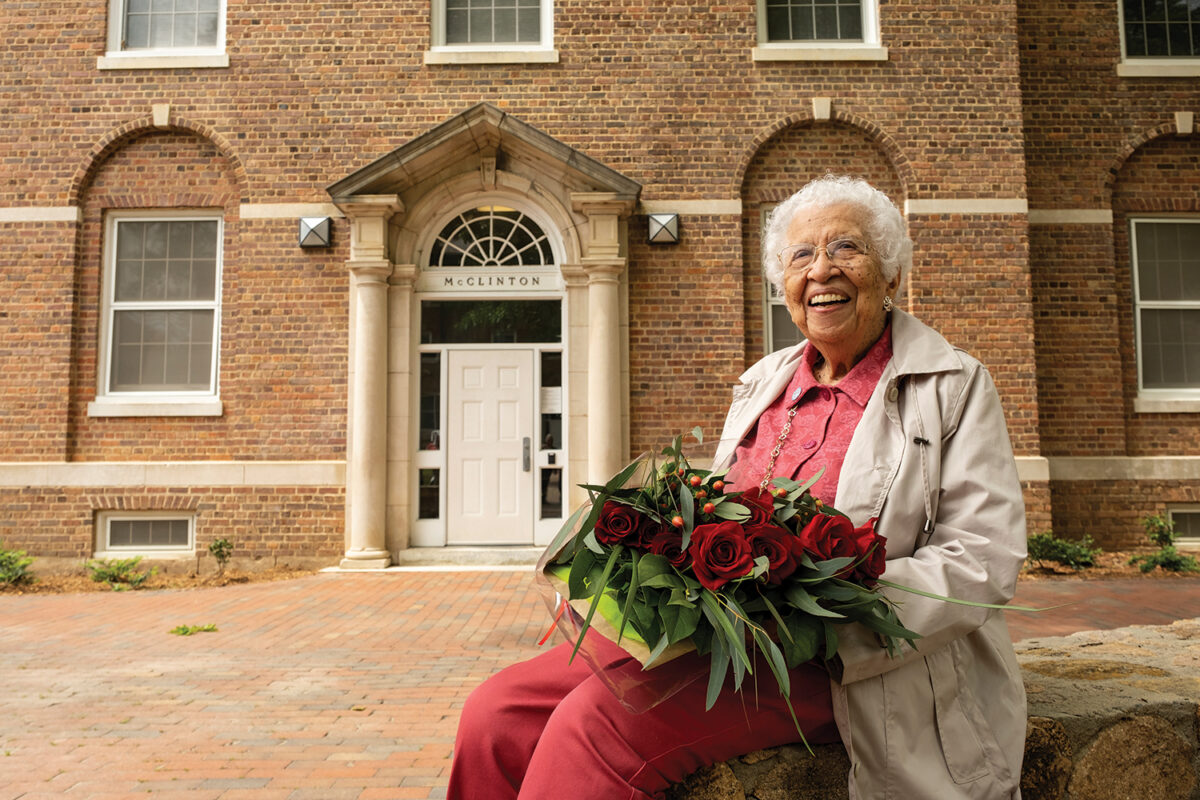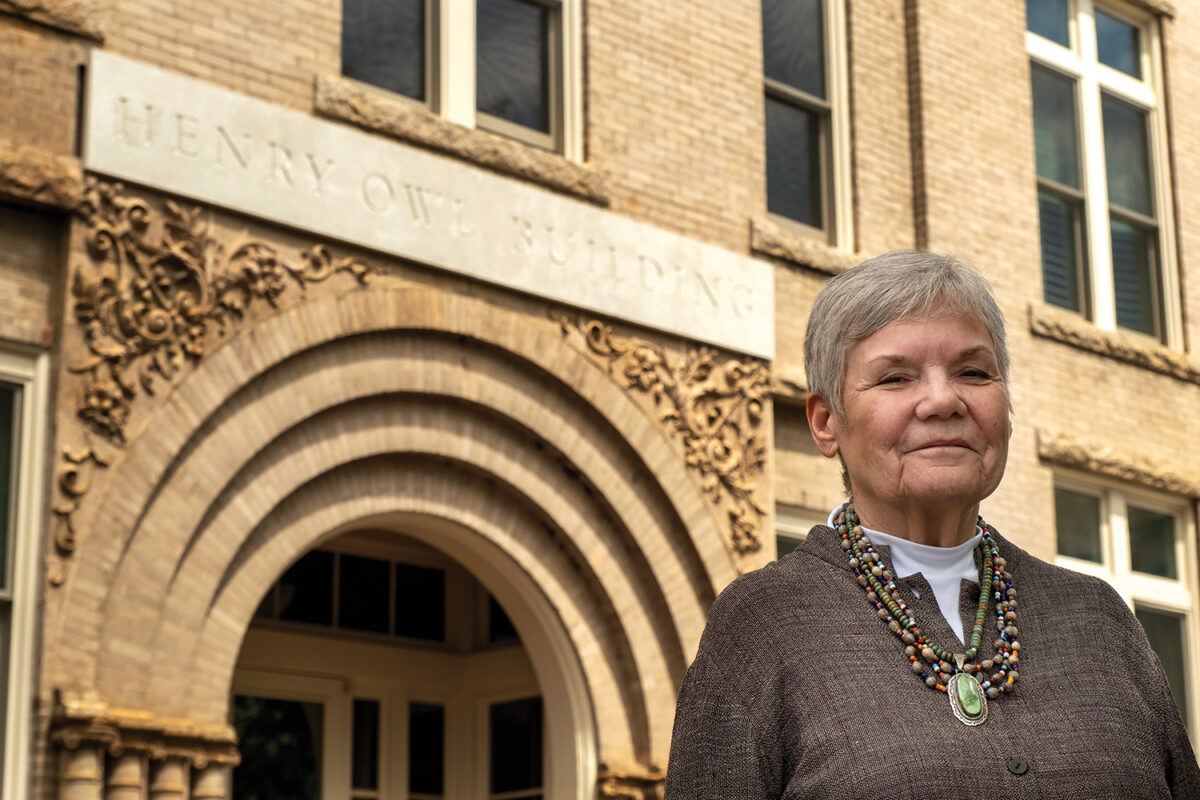McClinton, Owl Buildings Dedicated
Posted on May 16, 2022Names replace Aycock Residence Hall, Carr Building
During the May 13 dedication ceremony for a UNC residence hall named after her, Hortense McClinton said she learned a lot as a professor at Carolina, particularly how to say no.

“I just never expected this. Ever. And I appreciate it,” said Hortense McClinton. Photo: UNC/Jon Gardiner ‘98
“I was on 11 committees the first couple of years I was here because I was the only Black face on campus,” said McClinton, UNC’s first Black professor. “I got called to be on every committee and every search committee, and I learned a lot. I learned a lot from the students, and I changed my mind about things.”
McClinton, 103, taught in the School of Social Work from 1966 until her retirement in 1984. The former Aycock Residence Hall now bears her name. The Light on the Hill Scholarship Society sponsors the annual Hortense K. McClinton Outstanding Faculty Staff Award.
Held inside the Carolina Union Auditorium and presided over by Chancellor Kevin Guskiewicz, the ceremony included the dedication of the Henry Owl Student Affairs office building, formerly the Carr Building. Owl was the first American Indian and first person of color to enroll at the University, as a graduate student in history in 1928. He was awarded his master’s degree in 1929. He authored a study of Cherokee history, told from a Cherokee perspective that challenged the racist myths of white settler colonialism, and he fought for Cherokee Indians’ civil rights.
The name changes are a result of recommendations from the University’s Commission on History, Race and a Way Forward to rename campus buildings that may bear the names of individuals who supported white supremacy. In 1928, Aycock Residence Hall was named in honor of former Gov. Charles Brantley Aycock (class of 1880). The commission found that Aycock spearheaded the Democratic Party’s white supremacy campaign of 1898 and condoned the use of violence to terrorize Black voters and their white allies, campaigned for governor in 1900 on a platform of white supremacy and Black people’s disenfranchisement and embraced “white supremacy and its perpetuation” as the guiding principle of his political career.

Henry Owl’s daughter, Gladys Cardiff, cited the occasion as a “high and conspicuous honor.” Photo: UNC/Jon Gardiner ‘98
The Carr Building, which was a residence hall until the 1980s when it was converted to office space, was named in 1900 in honor of Julian Shakespeare Carr (class of 1866), who was a trustee from 1877 until his death in 1924 and the General Alumni Association president from 1912 to 1916. The commission reported Carr provided financial underwriting for the Democratic Party’s white supremacy campaign of 1898, used violence and condoned its use by others to suppress Black people’s claims to equal citizenship and worked to legitimize the regime of Jim Crow by promulgating a false history of the Civil War and its aftermath.
Owl’s daughter, Gladys Cardiff, thanked the audience for understanding the importance of the moment — not just for her family but for UNC — and cited the occasion as a “high and conspicuous honor” and the result of the work of countless people.
“The advocacy by the students and faculty, individual researchers and historians who provided information, the Chancellor’s Advisory Committee on Naming University Facilities and Units, and the Board of Trustees have worked to bolster and encourage a new generation toward the values of inclusion and welcoming,” Cardiff said. “The significance of today goes far beyond any one name. The aim to create and support a more diverse and inclusive campus as a strategic initiative, the potential for collaboration and mutual reciprocity, a celebration of our differences and our shared humanity, these are the high aims.”
Cardiff said she’s hopeful the weight of history will become true in the way it’s prized to be.
“I’ve been overwhelmed with your generosity and the wonderful words of people here,” she said. “History is all about who speaks and who gets to speak and who does not. So I thank you.”
McClinton said, “I just never expected this. Ever. And I appreciate it. I’m glad I had the opportunity to work here. I hope we will continue to do good things [against] racism, and we will learn a lot.”
— Laurie D. Willis ’86
Thanks for reading the Carolina Alumni Review
Carolina Alumni members, sign in to continue reading.
Not yet a member? Become one today.
